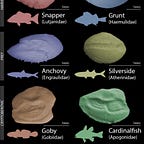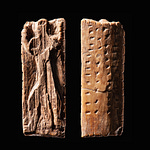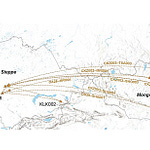By the time divers today descend through the warm, sunlit waters of the Caribbean, they're entering ecosystems that have already been profoundly altered by human hands. Fish are smaller. Apex predators like sharks are fewer. The shape of life on these reefs has shifted—but how, and from what baseline? A recent study offers a rare glimpse into the past, drawn not from mythology or memory, but from the sediment-packed skeletons of ancient coral.

A team of researchers led by Aaron O'Dea at the Smithsonian Tropical Research Institute examined fossilized reefs from Panama’s Bocas del Toro and the Dominican Republic, comparing them with modern reefs nearby. Their findings, published in Proceedings of the National Academy of Sciences1, suggest that the loss of top predators like sharks set off cascading changes that altered Caribbean reef ecosystems from top to bottom.










